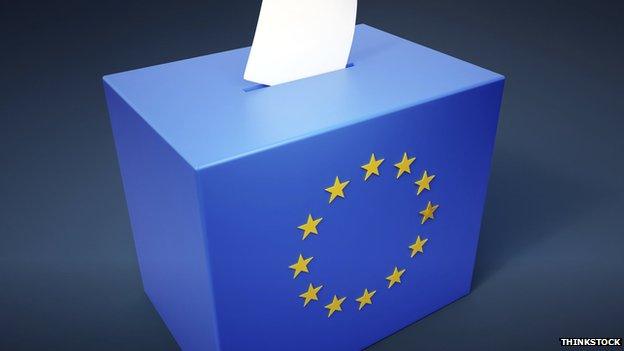Reality Check: When would an EU referendum be held?
- Published

Former Prime Minister Tony Blair says that the Conservatives have put an exit from the European Union "on the agenda" by promising an in/out referendum if they win the election. What would the timetable for a referendum be?
David Cameron has pledged to hold an in/out referendum on the UK's membership of the EU in the first half of the next Parliament, by which he means before the end of 2017.
He has also undertaken to renegotiate the UK's relationship with the European Union before the referendum is held.
What that means is that a future Conservative government would have up to two and a half years to negotiate a new deal, which in the context of the EU is a very tight deadline.
For example, one area for the renegotiations already highlighted is restricting EU citizens' access to welfare benefits. Mr Cameron believes that this would lower EU immigration.
While some of those measures could be achieved through changes to EU legislation, others could potentially trigger an EU treaty change, a process that requires unanimity of all member states, ratification by all national parliaments and which, last time round, took 10 years to complete.
Of course, the process would not need to be completed before the referendum.
Not all parties are committed to the 2017 referendum. UKIP has pledged to hold an in/out referendum this year if it wins the election. Both Labour and the Liberal Democrats said they would hold a referendum only if new powers were transferred from Westminster to Brussels.
And the Green Party is in favour of a referendum in which it would strongly campaign in favour of staying in.

Election 2015 - Reality Check

What's the truth behind the politicians' claims on the campaign trail? Our experts investigate the facts, and wider stories, behind the soundbites.
Read latest updates or follow us on Twitter @BBCRealityCheck, external
